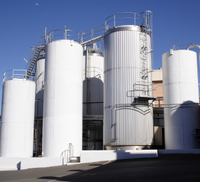 When finalized, the guide will direct FDA staff on how to implement and enforce registration provisions included in the Federal Food, Drug and Cosmetic Act and the Food Safety Modernization Act (FSMA).
When finalized, the guide will direct FDA staff on how to implement and enforce registration provisions included in the Federal Food, Drug and Cosmetic Act and the Food Safety Modernization Act (FSMA).The draft explains the consequences of failing to renew registrations on time, details how FDA will exercise its registration suspension authority and outlines changes to the agency’s policy concerning facilities that haven’t registered. It replaces the current Compliance Policy Guide, which was issued in 2004.
The Food Safety Modernization Act requires food facilities to renew their registrations every two years. According to the new guidance, FDA will consider a facility registration that has not been renewed to be expired. The agency will notify the company that the registration has expired and emphasize the renewal requirement.
An expired registration can be significant for foreign food facilities because imports can be denied entry if the facility’s registration has expired.
The guidance also instructs FDA staff when to exercise its authority under FSMA to suspend a food facility’s registration. FDA names three circumstances when staff should give “priority consideration” to recommending suspension:
• significant uncorrected violations,
• mandatory recall and
• foreign facility import alert.
These situations are included because there is a reasonable probability that use of or exposure to the food would cause serious adverse health consequences or death.
The new guidance also offers changes to agency policy on handling facilities that haven’t registered.
Members may login below to read “FDA Issues Draft Compliance Policy Guide on Food Facility Registration and Suspension of Registration Under FSMA,” a memorandum from Hogan Lovells, IDFA’s outside counsel.





